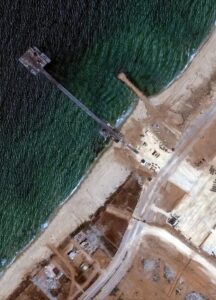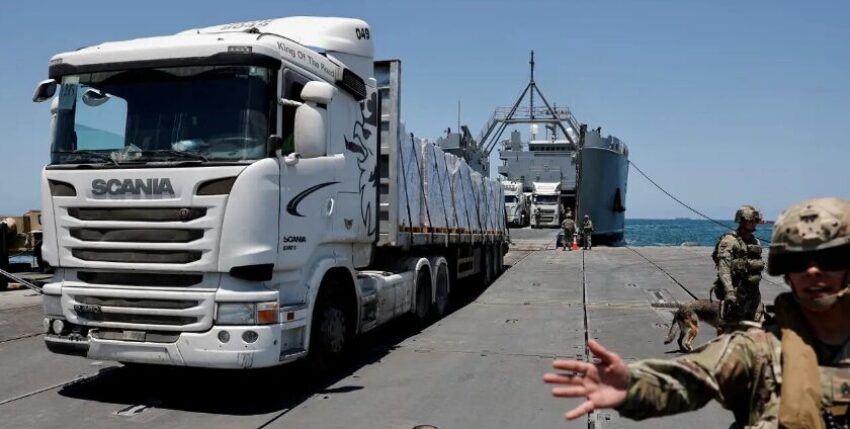The USA speaks of a great success - but aid organisations describe "Port Gaza" as a "230 million dollar failure"! And why is this pier now being dismantled and withdrawn?
Vice Admiral Brad Cooper, Deputy Commander of the United States Central Command (Tampa/Florida), speaks very highly of the American pier off Gaza and praises its efficiency: a volume of 9,000 tonnes of aid was handled via this pier, corresponding to around 425 fully loaded articulated lorries. Of course, the floating pier occasionally had to be closed or repaired due to damage caused by bad weather conditions and was therefore temporarily out of action. However, this maritime mission has now been successfully completed, as "there is no longer any need for this pier"!
This calls for attention, because there is hardly any other place in the world where the plight of the people is currently greater than among the civilian population of the Gaza Strip!

Why the U-turn?
A quick calculation exposes the wound: At a total cost of 230 million dollars, every tonne of relief supplies handled incurs almost exactly 25,000 dollars in additional costs - or, calculated another way, if the pier was actually in operation for 25 days, that would be almost exactly one million dollars in costs per day used! On top of that, according to the information available, only half of the 25 days were actually usable due to safety concerns on the part of the aid organisations. Can you seriously call that a success?
The editorial team does not have any information on the costs of other aid delivery methods, but the air-drop method of pallets was probably a bargain in comparison. Consequently, the sea route for aid supplies is now being shifted via the southern Israeli port of Ashdod with sufficient pier facilities - the aid supplies have to pass through several Israeli controls before they are allowed into the Gaza Strip anyway.
A different perspective
However, international aid organisations are also making a completely different calculation, as the aid deliveries often do not reach the people in need because the convoys are looted by Hamas and other armed groups on their way in the absence of public order.
Overall, of the four border crossings, only West Erez (north) and Kerem Shalom (south-east) are currently functioning - the two other access points Erez in the north and Rafah in the south are closed, according to the Neue Züricher Zeitung. The northern access points were never intended for the transport of goods anyway - the control and passage volume there is correspondingly low. While the distribution of aid to the population in the south is described as difficult, it is almost non-existent in the north of the Gaza Strip.
Humanitarian bankruptcy
The following figure may also serve as a measure of the catastrophe (Israeli government agency Cogat): During the nine months of war so far, some 41,000 lorries have reached the Gaza Strip - in the nine months before the war there are said to have been twice as many - and even then conditions were already precarious, but it was still relatively very quiet times and there was no real emergency yet!
A good try - but not a failure
The American floating pier on the coast of Gaza could not solve the fundamental problems of insufficient aid supplies and difficult distribution in the current state of war. The relocation of transshipment to Ashdod also raises little hope due to the Erez and West Erez bottlenecks as border crossings that are hardly resilient. But the attempt by the USA was a respectable one and by no means a failure - and this should certainly be honoured! A supposedly inhumane "dollar-per-tonne" settlement must be allowed - to clear the way for better solutions! It could all have been over already . . .








